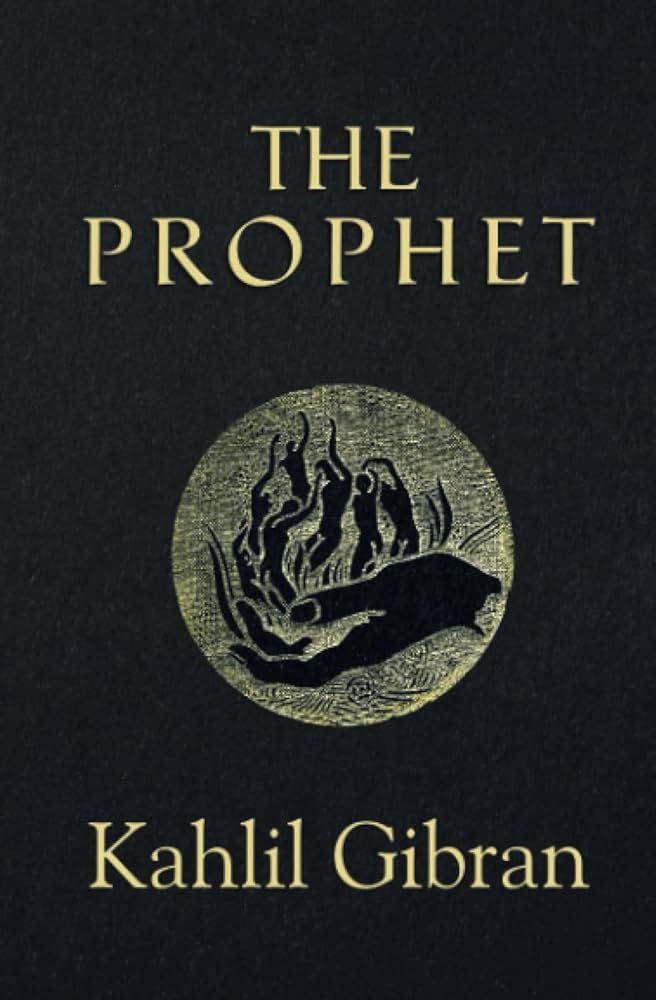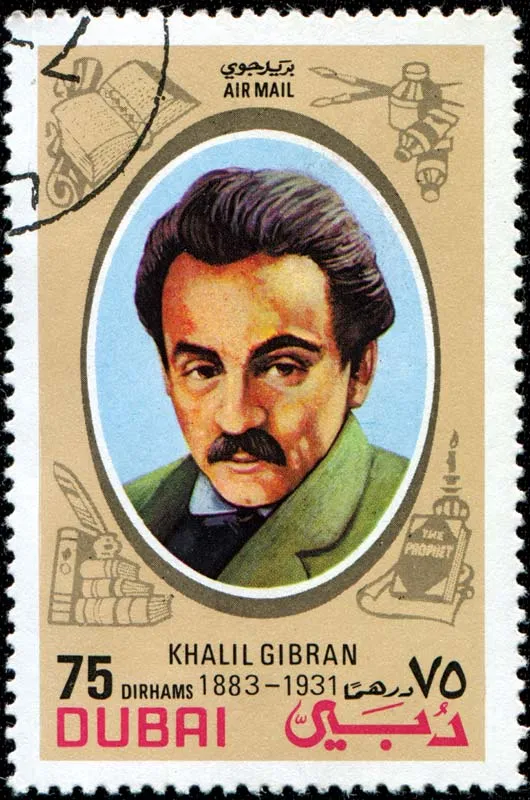.webp)
Amir Suhail Wani
Khalil Gibran, one of the most influential writers, poets, and philosophers of the early 20th century, was born on January 6, 1883, in the small town of Bsharri, in present-day Lebanon, then part of the Ottoman Empire.
His early years were marked by hardship, as his family faced economic difficulties. His mother died when he was a young boy. In 1895, his family immigrated to the United States and settled in Boston, where Gibran began his journey of self-discovery, blending the cultural influences of the East and West. His life became a bridge between two worlds—the mysticism and spiritual traditions of the Middle East, and the materialism and industrialization of the West.
Gibran’s works span a variety of genres, including poetry, prose, and philosophical essays. His most famous work, The Prophet, published in 1923, has achieved international recognition and continues to be one of the best-selling books of all time. In this book, Gibran delivers profound spiritual and philosophical wisdom through the character of Almustafa, a prophet who shares his insights on love, marriage, children, work, freedom, and religion with the people of a fictional town.
 Khalil Gibran's most famous book
Khalil Gibran's most famous book
This lyrical, mystical work, written in English, transcended cultural boundaries, resonating deeply with readers around the world due to its universal themes of human connection and spirituality. The simplicity of the language, coupled with the profundity of the ideas, makes The Prophet accessible to readers from all walks of life.
Gibran’s philosophy is rooted in a deep sense of spirituality, drawing upon the mysticism of his Lebanese heritage, the teachings of Sufism, and the Christian and Eastern philosophies he encountered in his readings and interactions with different cultures. His approach to religion was not confined to the dogmas of any particular faith; rather, he sought to transcend sectarian divides and embrace the shared truths that unite humanity.
He believed in a higher, universal truth that can be found in the hearts of all people, regardless of their religious background. In his works, Gibran often emphasized the importance of self-discovery and personal transformation, encouraging individuals to look within themselves for answers to life’s most profound questions. His reflections on religion were more spiritual than doctrinal, advocating for a personal relationship with the divine and encouraging a harmonious existence with the world around us.
One of Gibran's most enduring contributions to thought is his concept of brotherhood and human unity. Throughout his writings, he urges readers to recognize the interconnectedness of all people, transcending divisions based on nationality, race, or belief. His vision of unity was not just abstract but also deeply practical, advocating for compassion, understanding, and love in our daily interactions with others.
In his essay "On Brotherhood" from The Prophet, he writes: "Your joy is your sorrow unmasked. And the selfsame well from which your laughter rises was oftentimes filled with your tears." This insight reflects Gibran’s understanding that human experience, both joyful and sorrowful, is interwoven, and through empathy and shared experience, we can achieve true brotherhood.
 Postal Stamp issued by the UAE government on Khalil Gibran
Postal Stamp issued by the UAE government on Khalil Gibran
His philosophy of life was also marked by a deep appreciation for the beauty of nature and the human condition. Gibran saw art, music, and beauty as expressions of the divine, and he encouraged people to embrace the transformative power of creativity. He also believed that suffering was an essential part of life’s journey, a necessary catalyst for growth and spiritual enlightenment. For Gibran, pain and joy were not opposites but two sides of the same coin, and only by fully embracing both could individuals achieve wholeness. His writing, often marked by lyrical beauty and deep symbolism, reflects this synthesis of opposites—of light and darkness, life and death, joy and sorrow.
Throughout his life, Gibran’s work was not just confined to his personal reflections but was also deeply influenced by the tumultuous times in which he lived. The early 20th century was an era of profound social and political upheaval, as the world grappled with the effects of industrialization, imperialism, and war. The decline of the Ottoman Empire, the emergence of nationalism in the Arab world, and the challenges of immigration all played a role in shaping Gibran’s worldview.
His experience as an immigrant in the United States, witnessing the contrast between the materialistic society of the West and the spiritual richness of his Middle Eastern roots, gave him a unique perspective on the human condition. This dual identity informed his writing, where he explored themes of displacement, longing, and the search for belonging.
Despite his success as a writer, Gibran's life was marked by personal sorrow and challenges. He struggled with issues of health, poverty, and the complexities of his relationships, particularly with his mother and later, his muse, the artist May Ziadeh. His health deteriorated over the years, and Gibran passed away on April 10, 1931, at the age of 48, leaving behind a legacy that continues to inspire generations.
ALSO READ: A peek into ensembles and fashions of the Royals Nizam and Paigah
Khalil Gibran’s life and works offer a profound exploration of the human spirit, emphasizing themes of love, brotherhood, and the pursuit of wisdom. His writings continue to inspire readers worldwide, transcending cultural and religious boundaries. In a world often divided by difference, Gibran’s message of unity and compassion remains as relevant today as it was during his lifetime. His deep insights into life, religion, and the human experience invite us to reflect on our shared humanity and the possibility of spiritual and personal growth. Gibran's legacy endures, reminding us of the transformative power of love and the importance of embracing both our joys and sorrows in the quest for meaning and connection.
